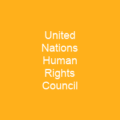Understanding Human Rights: A Universal Moral Framework
Human rights are universally recognized moral principles that establish standards of human behavior and are protected by national and international laws. These rights are considered inherent and inalienable, meaning they belong to every individual simply by virtue of being human, regardless of characteristics like nationality, ethnicity, religion, or socio-economic status.
The Evolution of Human Rights
Have you ever wondered how the concept of human rights came into existence? The modern concept gained significant prominence after World War II, particularly in response to the atrocities of the Holocaust. This led to the adoption of the Universal Declaration of Human Rights (UDHR) by the United Nations General Assembly in 1948. This document outlined a comprehensive framework of rights that countries are encouraged to protect, setting a global standard for human dignity, freedom, and justice.
The Debate Surrounding Human Rights
While the principle of universal human rights is widely accepted, debates persist regarding which rights should take precedence, how they should be implemented, and their applicability in different cultural contexts. Criticisms often arise from perspectives like cultural relativism, which argue that individual human rights are inappropriate for societies that prioritize a communal or collectivist identity.
The Historical Context of Human Rights
It’s fascinating to note that the concept of human rights has evolved over time. Ancient peoples did not have the same modern-day conception, but the idea of natural rights and human dignity existed in various forms throughout history. Philosophers like John Locke, Jean-Jacques Burlamaqui, and St Paul’s early Christian thinkers contributed significantly to this discourse.
The Medieval Natural Law Tradition
During the medieval period, the natural law tradition influenced European thought on human rights. For instance, the Kouroukan Fouga, a constitution of the Mali Empire, protected women’s rights. The School of Salamanca defined law as a moral power over one’s own and stated that there are certain natural rights related to the body and spirit.
The Modern Human Rights Movement
The modern human rights movement emerged in the latter half of the 20th century, influenced by documents like the Magna Carta, the English Bill of Rights, and the United States Constitution. Key figures such as John Locke discussed natural rights and argued that fundamental rights could not be surrendered in the social contract.
The Universal Declaration of Human Rights (UDHR)
In 1948, the UDHR was adopted by the United Nations General Assembly, partly in response to World War II events. The document urges member states to promote human, civil, economic, and social rights, asserting these rights are part of the foundation of freedom, justice, and peace.
Enforcement Strategies for Human Rights
Promotion strategies for enforcing human rights include six paradigms: accountability, inducement, assistance, domestic contestation and engagement, compulsion, and external adaptation. Domestic contestation and engagement refer to external actors’ impact on a state’s behavior through its internal processes. Compulsion involves coercive measures, while external adaptation recognizes that human rights compliance requires reforming external factors like trade policies or international laws.
International Courts and Human Rights
The International Court of Justice (ICJ) settles disputes between nations, while the International Criminal Court (ICC) investigates and punishes war crimes and crimes against humanity. Regional courts include the African Court on Human and Peoples’ Rights and the Inter-American Commission on Human Rights.
Regional Human Rights Regimes
Regional human rights regimes are established in over 110 countries, including the African Union (AU) and the Organization of American States (OAS). The OAS has an ASEAN Intergovernmental Commission on Human Rights and adopted the ASEAN Human Rights Declaration in 2012. The Arab Charter on Human Rights was adopted by the Council of the League of Arab States in 2004.
Theoretical Approaches to Human Rights
Various theoretical approaches explain how and why human rights become part of social expectations. One approach holds that human rights are a product of natural law, stemming from different philosophical or religious grounds. Other theories include the sociological theory of law and the notion that individuals in a society accept rules from legitimate authority in exchange for security and economic advantage.
Universalism vs Cultural Relativism
The debate between universalism and cultural relativism is crucial. Universalism argues that human rights are universal and indivisible, applying equally to all regardless of culture or location. Critics argue that human rights are a Western concept not applicable to other cultures and that they are unrealistic and unenforceable.
Limitations and Challenges
Critics also point out that human rights can be limited in emergency situations, but only when the situation is actual, affects the whole population, and threatens the nation’s existence. Certain rights are considered peremptory norms or jus cogens and cannot be modified by treaty.
Conclusion
The concept of human rights is a complex yet essential framework that has evolved over centuries to protect individuals from abuse and ensure dignity and freedom. While challenges remain, the universal recognition of these rights serves as a beacon for justice and equality worldwide. Understanding and upholding human rights is not just a legal obligation but a moral imperative.

You want to know more about Human rights?
This page is based on the article Human rights published in Wikipedia (retrieved on January 28, 2025) and was automatically summarized using artificial intelligence.





